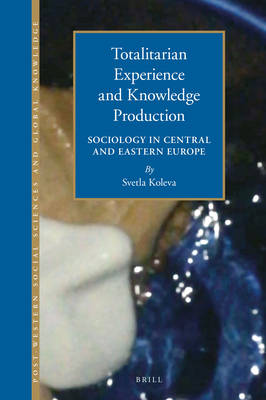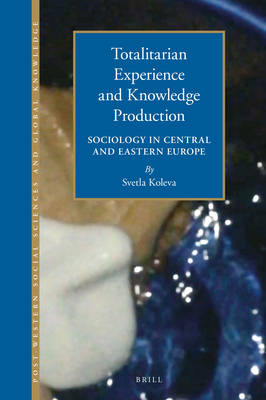
- Afhalen na 1 uur in een winkel met voorraad
- Gratis thuislevering in België vanaf € 30
- Ruim aanbod met 7 miljoen producten
- Afhalen na 1 uur in een winkel met voorraad
- Gratis thuislevering in België vanaf € 30
- Ruim aanbod met 7 miljoen producten
Zoeken
Totalitarian Experience and Knowledge Production
Sociology in Central and Eastern Europe 1945-1989
Svetla Koleva
€ 213,95
+ 427 punten
Omschrijving
Totalitarian Experience and Knowledge Production examines, in a comparative perspective, sociology as practiced in six European Communist countries marked by various forms of totalitarianism in the period 1945-1989. In contrast to normative sociology's view that such coexistence is essentially impossible, the author argues that sociology could function in these undemocratic societies insofar as sociologists succeeded in establishing relatively autonomous institutional and cognitive zones. Based on the self-reflection of scholars who had practiced their profession during that period, the book reveals the tribulations of the scientific identity of sociology under the specific social-political conditions of totalitarian societies. It becomes evident that the basic principle that made sociological knowledge possible was freedom of thought in search for scientific truth despite the 'truth' imposed by political authority.
Specificaties
Betrokkenen
- Auteur(s):
- Uitgeverij:
Inhoud
- Aantal bladzijden:
- 316
- Taal:
- Engels
- Reeks:
- Reeksnummer:
- nr. 2
Eigenschappen
- Productcode (EAN):
- 9789004322325
- Verschijningsdatum:
- 1/12/2017
- Uitvoering:
- Hardcover
- Formaat:
- Genaaid
- Afmetingen:
- 155 mm x 239 mm
- Gewicht:
- 635 g

Alleen bij Standaard Boekhandel
+ 427 punten op je klantenkaart van Standaard Boekhandel
Beoordelingen
We publiceren alleen reviews die voldoen aan de voorwaarden voor reviews. Bekijk onze voorwaarden voor reviews.








